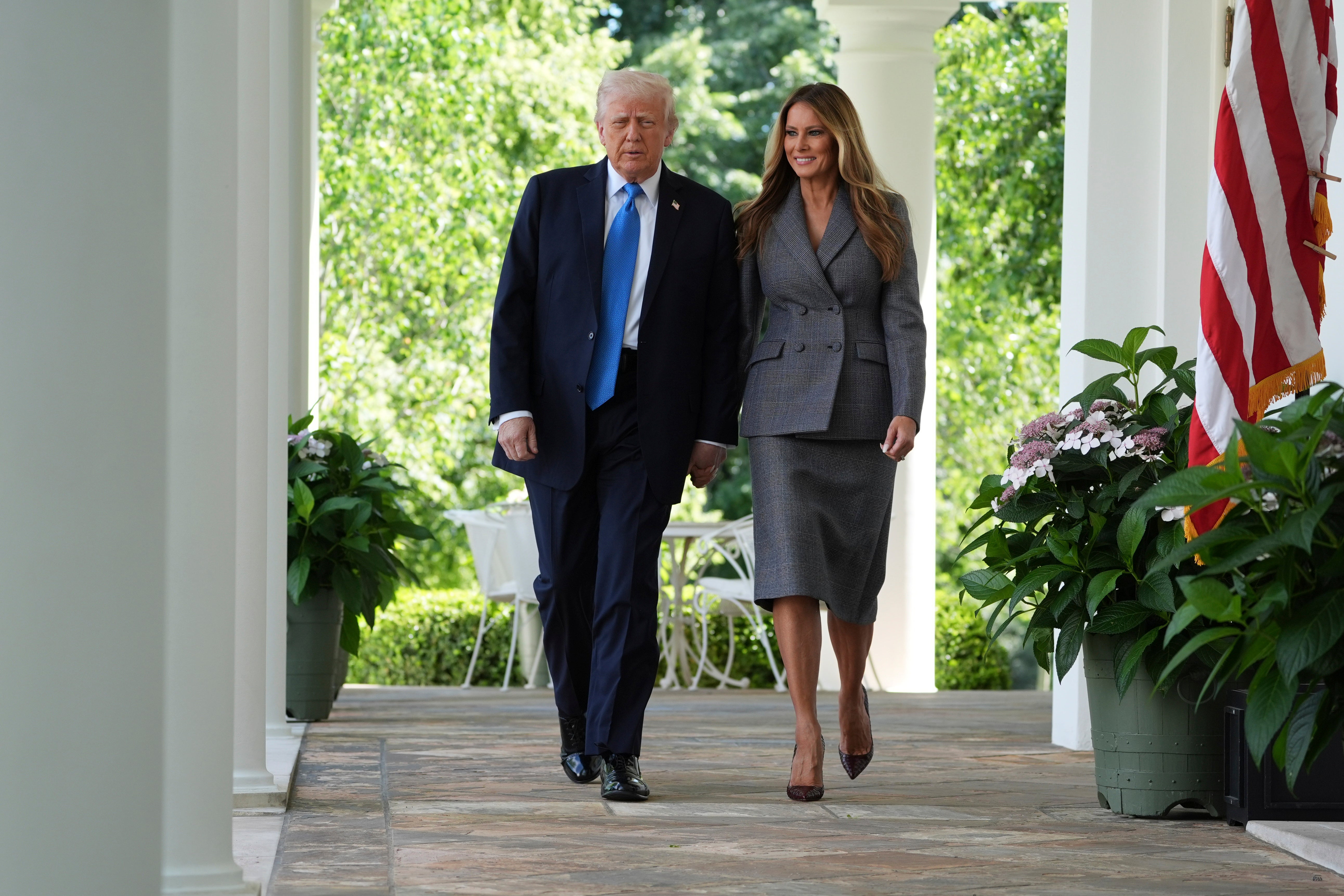ARTICLE AD BOX
President Donald Trump has signed into law a bipartisan bill seeking to end the nonconsensual use of someone’s likeness to create deepfake pornography after a bipartisan effort that was aided by First Lady Melania Trump, who testified before Congress on the legislation’s benefits.
Speaking during a brief signing ceremony in the White House Rose Garden, Trump said the Take It Down Act will be “the first ever federal law to combat the distribution of explicit, imaginary posted without a subject’s consent” and remarked that the legislation covers AI-generated forgeries — better known as “deep fakes” — used to harass or extort victims.
“With the rise of AI image generation, countless women have been harassed with deep fakes and other explicit images distributed against their will. This is the wrong and it's just so horribly wrong, and it's a very abusive situation, like in some cases, people have never seen before, and today we're making it totally illegal,” he said.
“We will not tolerate online sexual exploitation, and especially it's gone on at levels that nobody has ever seen before. It's getting worse and worse, and I think this is going to hopefully stop it,” he added later.
Trump’s remarks followed a rare public appearance by his wife, Melania Trump, who opened the Rose Garden ceremony with brief remarks on the legislation she’d helped to shepherd through Congress earlier this year.
She called passage of the law “a national victory that will help parents and families protect children from online exploitation” and “a powerful step forward in our efforts to ensure that every American, especially young people, can feel better protected from their image or identity being abused through non consensual, intimate imagery.”
The First Lady said the combination of AI image generation technology and social media are “the digital candy for the next generation” and described them as “sweet, addictive and engineered to have an impact on the cognitive development of our children.”

“But unlike sugar, these new technologies can be weaponized shaped beliefs and sadly, affect emotions and even be deadly,” she said. “Today, through the Take it Down Act, we affirm that the well being of our children is central to our future of our families and America.”
The new law criminalizes the dissemination of nonconsensual “deepfakes” in pornography – or using artificial intelligence to manipulate adult performers to appear like celebrities, average citizens, lawmakers and more.
Under the legislation, offenders could be subject to fines or imprisonment for publishing depictions of both real or computer-generated people without their consent or with harmful intent.
In addition to criminal penalties that take effect immediately, the law also provides for oversight from the Federal Trade Commission under which online platforms will be required to incorporate a way for victims of revenge porn to request it be removed. Platforms will then have 48 hours to remove the content.
However, with recent cuts to the FTC and other agencies, it’s unclear how smooth the report and remove rollout will be.
Versions of the Take it Down Act had been in the works for years, with lawmakers hoping to extend protections to people who are victims of “revenge porn” or who have intimate images of themselves published without consent.
Trump’s signature on the bill makes it one of just a few pieces of legislation enacted since he returned to the White House for a second term this past January. The new law’s journey through Congress was a rare moment of bipartisan comity.
Members of the House of Representatives voted 409-2 in favor of passing the bill, with only Reps Thomas Massie and Eric Burlison, both Republicans, voting against it. And in the Senate, not one person voted against the bill, which was sponsored by Republican Senator Ted Cruz of Texas and Democratic Senator Amy Klobuchar of Minnesota.
Research shows that having your image used in pornography can have devastating mental, emotional or physical effects on people, particularly children. In 2023, the FBI released an alert warning that many victims of deepfake pornography end up being extorted. The agency said that in more than a dozen cases, victims died by suicide.
The issue has gained attention over the last few years as high-profile celebrities have become victims of deepfake technology. Last year, Taylor Swift became a victim of explicit deepfake images made in her likeness once they were posted on X and disseminated across other social media platforms.









 English (US) ·
English (US) ·